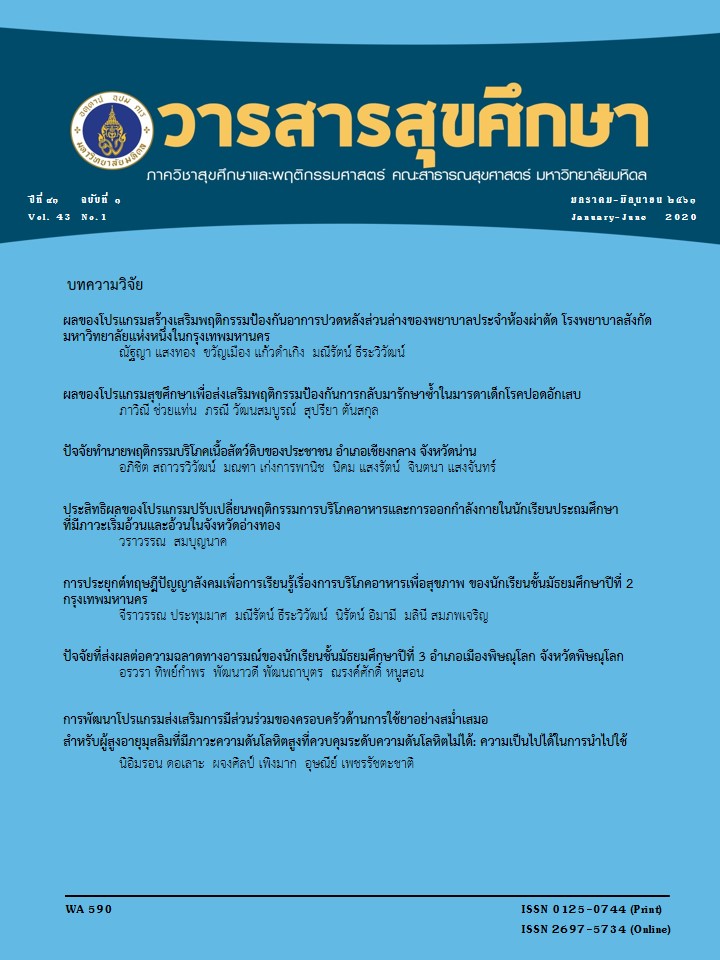Effectiveness of Applying Self - Efficacy Theory and Social Support on Smoking Cessation Program for Persons with Chronic Diseases
Keywords:
Health Education Program, Tobacco Cessation, NCDs Patient, Self Efficacy Theory, Social SupportAbstract
Tobacco use is a common risk factor to the primary non-communicable diseases (NCDs) such as cardiovascular disease, diabetes, and hypertension. This quasi-experimental two groups pretest - posttest design aimed to study the effects of applying self-efficacy theory and social support on smoking cessation program for persons with chronic diseases. Sixty - two patients were recruited by simple random sampling, and they were assigned to experimental and comparison groups of 31 patients each. The six sessions of health education program for 12 weeks which were designed based on the Self-efficacy and Social Support Theory, and provided for the experimental group. The data were collected using an interview questionnaire about knowledge of harmful tobacco consumption for NCDs patient, perceived self-efficacy and outcome expectation of smoking quit and quit smoking behavior. Chi-square test, Paired t-test, Independent t-test and Z-test was used for data analysis.
The results showed that the experimental group had significantly better changes in knowledge of harmful tobacco consumption for NCDs patients than pre-experiment period (p<.01) and the comparison group (p<.01). The experimental group had significantly better changes in perceived self-efficacy of smoking quit than a pre-experimental period and the comparison group (p=0.003). The experimental group had a significantly better change in outcome expectation of smoking quit than pre-experiment period (p<.001). Moreover, after the intervention, 32.3% of the experimental group can quit smoking. The research results demonstrated that smoking quit program in NCDs patients is useful, and can apply for tobacco cessation system in health service.



